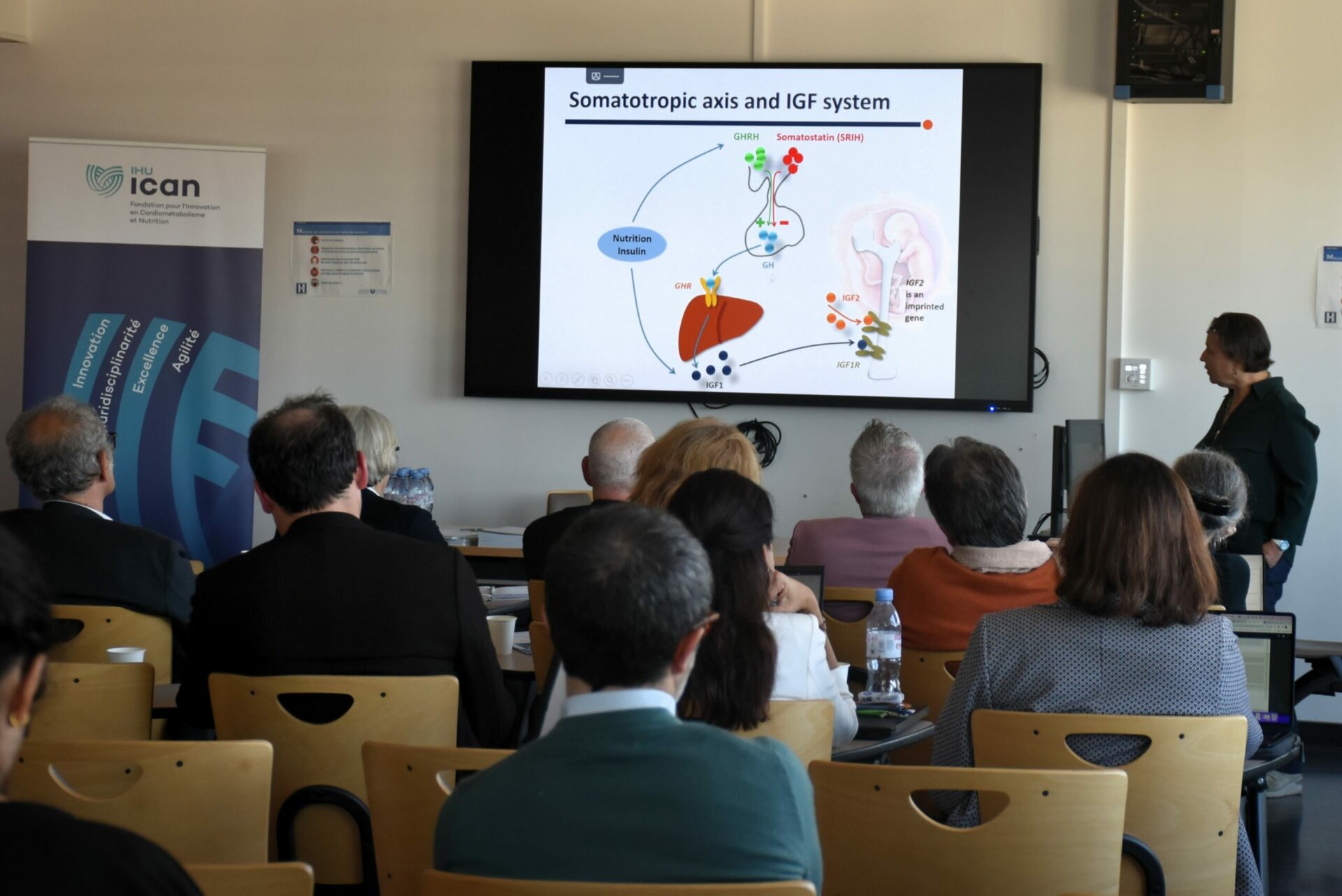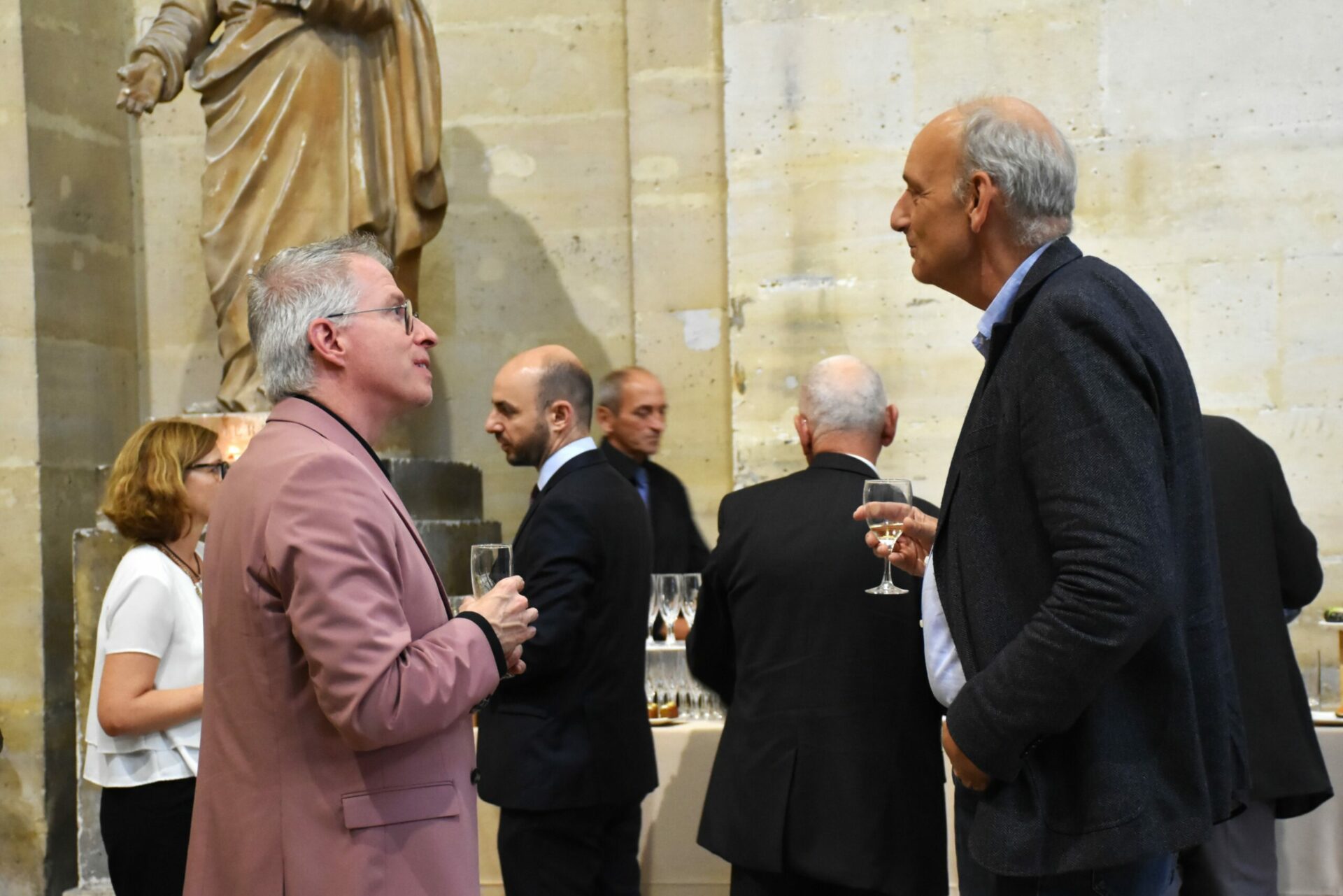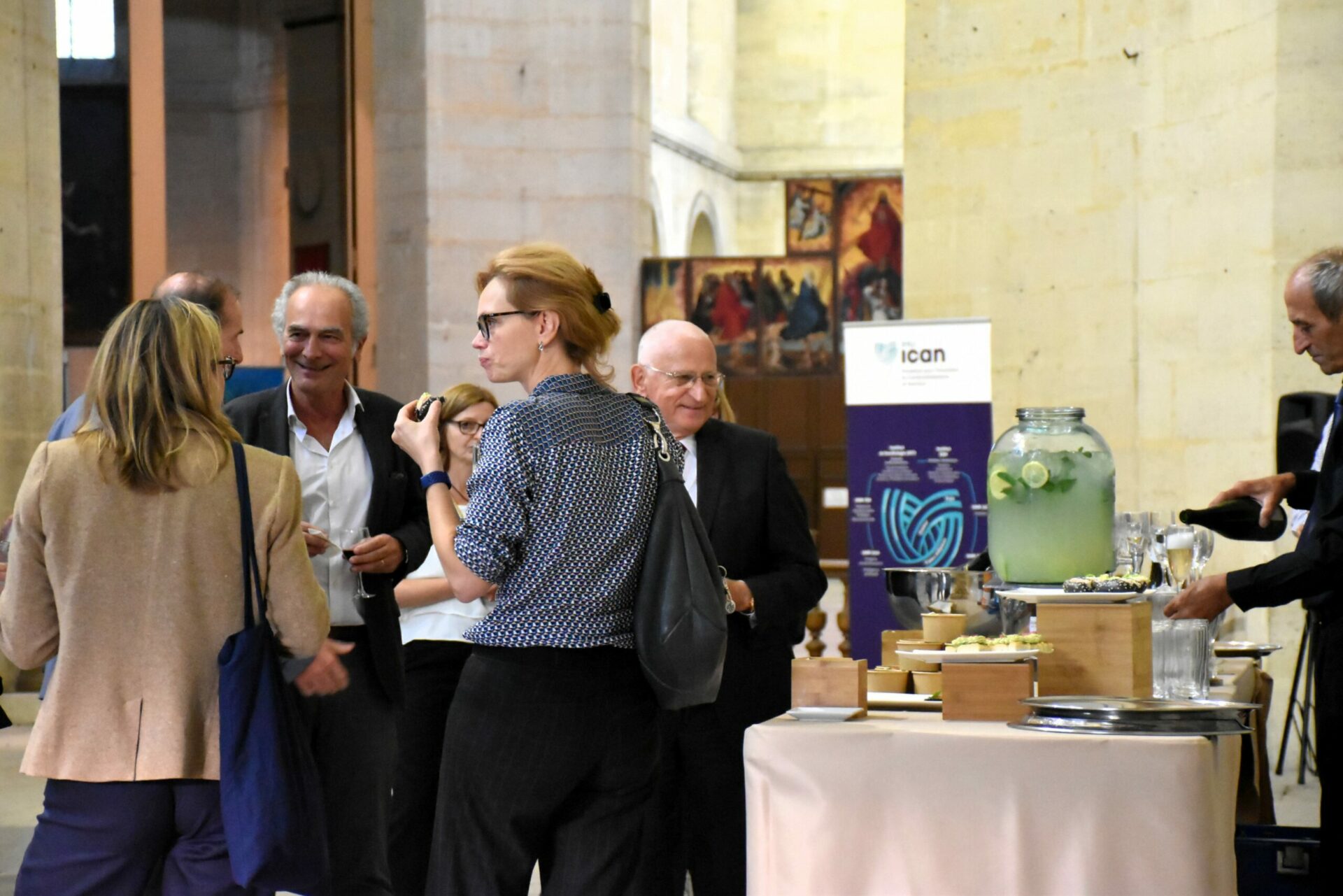Meeting of the International Scientific Council of the IHU ICAN :
what are the major scientific orientations?
On September 25 and 26, 2023, IHU ICAN was pleased to welcome the members of its International Scientific Advisory Board to discuss the Foundation’s major scientific orientations in the fight against cardiometabolic diseases (obesity, diabetes, liver disease, heart and vessel disease, etc.).
The visit was punctuated by a cocktail in the heart of a unique place: the Saint-Louis de la Salpêtrière chapel, built in 1670 as part of the Pitié-Salpêtrière hospital.
The IHU ICAN would like to thank all the participants for their commitment and the quality of the discussions, as well as the AP-HP for making this wonderful event possible!
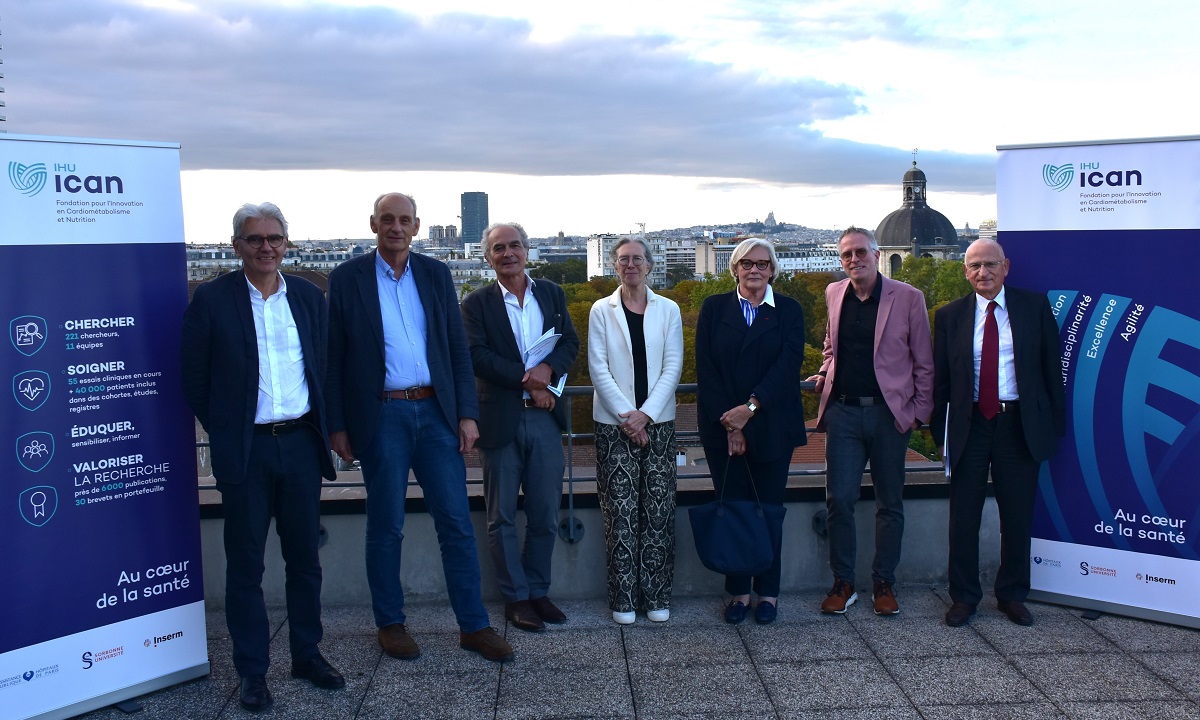
Strategic priorities of IHU ICAN, a benchmark scientific foundation in cardiometabolism
Stéphane Hatem, Director of the ICAN IHU, spoke about the ICAN IHU’s strategic priorities in the fight against cardiometabolic diseases, the leading cause of chronic illness and death in France.
- How can we better understand and decipher the dialogue between organs, particularly between the heart and the liver?
- What is the link between environmental and genomic factors? Rare monogenic cardiometabolic diseases with polymorphisms
- How can new biomarkers be used to develop precision medicine for the benefit of patients?
- How can we meet the challenge of generating and structuring high-quality healthcare data to accelerate medical and scientific research?
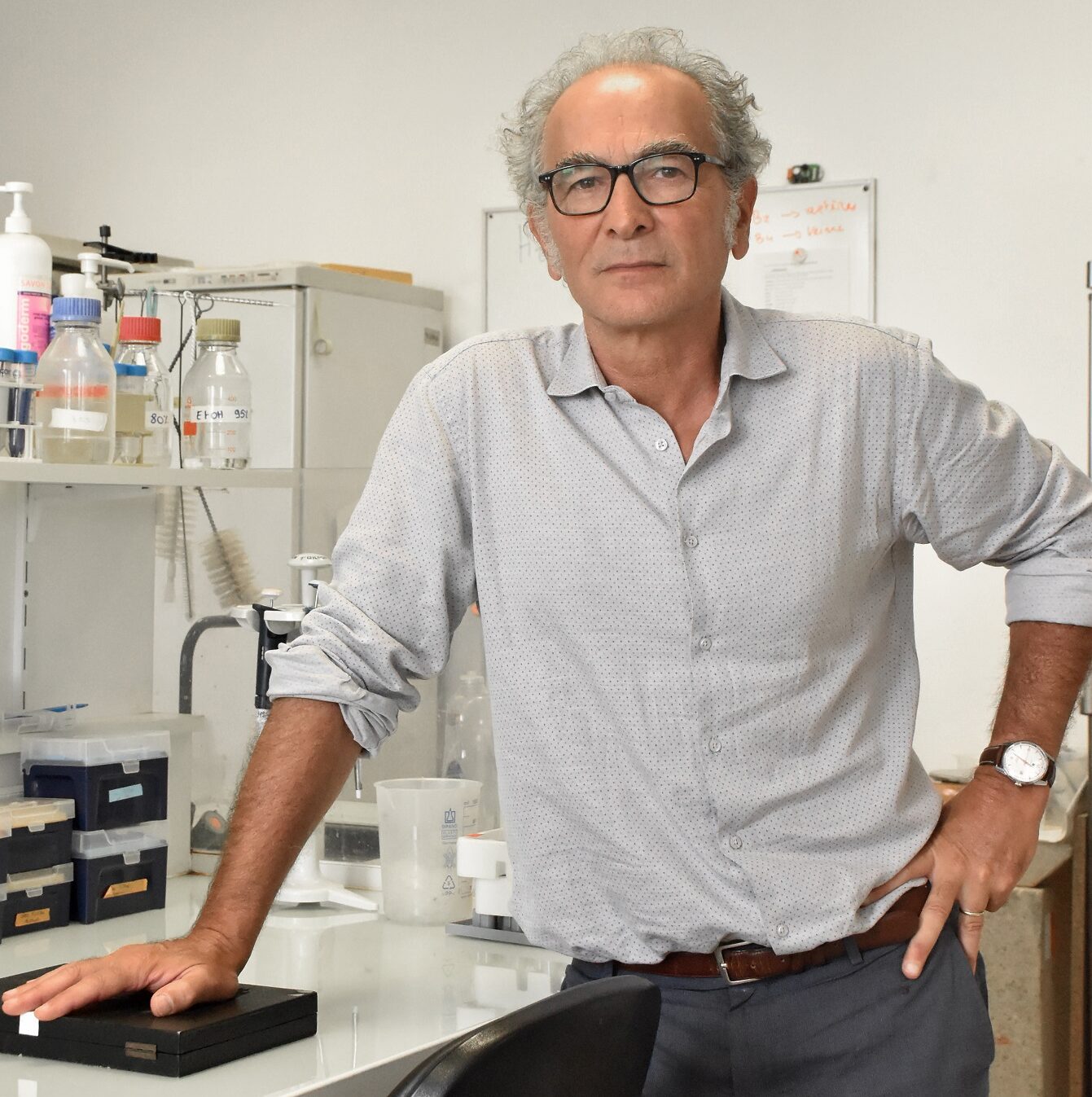
“IHU ICAN must fulfill its role as a partner and lever for a broader scientific and medical community in the field of cardiometabolism. Our foundation (set up by AP-HP, Inserm and Sorbonne Université) offers a full range of services and cutting-edge expertise, positioning members of its community at the forefront of major academic and industrial projects.
The integration of healthcare data into research, new interfaces for metabolic diseases, and the discovery of new biomarkers, particularly imaging biomarkers, are all challenges that perfectly illustrate the 2025/2030 orientations and ambitions for developing precision medicine for cardiometabolic diseases”.
Major scientific and medical research projects presented
Researchers and physicians from the IHU community then presented the major research projects currently underway, which represent encouraging advances in our understanding of cardiometabolic diseases and in tomorrow’s medicine, in the service of patients.
This SAB meeting was also an opportunity to welcome high-level personalities who were able to provide an expert view of the ICAN IHU presentations and make valuable recommendations:
- Pr Catherine Boileau, pharmacist-biologist specializing in genetics, Director of several research units, member of the ICAN IHU Administrative Committee,
- Pr Michel Komajda, Member of the French Academy of Medicine, Former Director of the Pitié-Salpêtrière Heart Institute, Former President of the European Society of Cardiology and President of the Heart & Research Foundation,
- Philip Janiak, Director of biotech Corteria Pharmaceuticals, former R&D Director of Sanofi’s Cardiometabolic Department, and member of the ICAN HCI Administrative Committee.
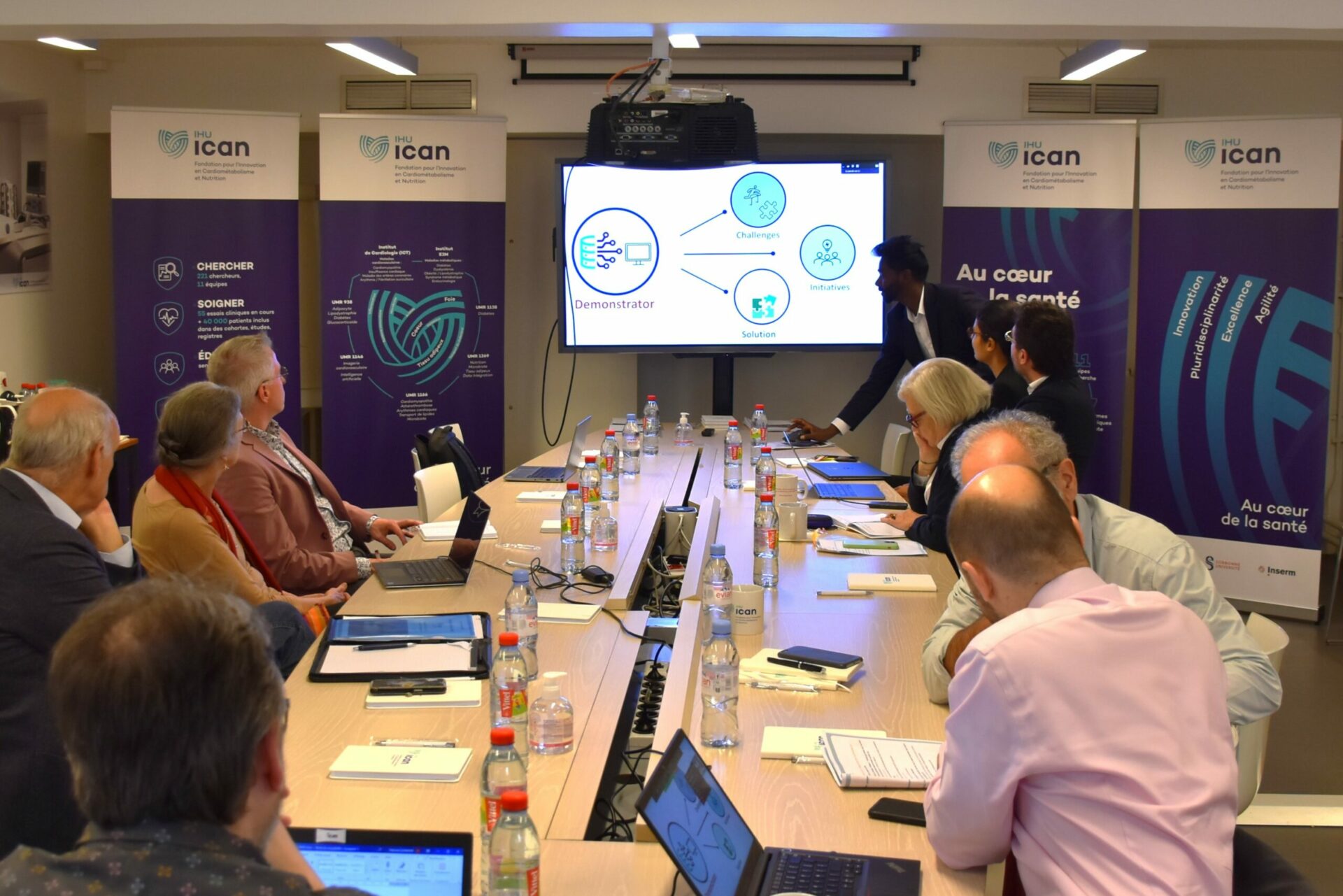
Program
The heart-liver interface: a promising area of research
- Liver, the metabolic hub for cardiometabolic diseases – Pr Vlad Ratziu
- New mediators released by diseased liver – Pascal Ferré
- Necroptosis and MLD – Jérémie Gautheron
Adipose tissue, a central interface for cardiometabolic diseases
- Adipose tissue and heart : EAT and AF – Pr Stéphane Hatem
- Lipodystrophy from patient cohort to adipose tissue biology – Pr Corinne Vigouroux
Microbiota and cardiometabolic diseases
- Metabolic dysbiosis associated with obesity and CMD and interventionalstrategies : FMT to improve T2D control – Pr Judith Aron-Wisnewsky
From rare mutations to risk factors for cardiometabolic diseases
- Twin technology and the prediction of CV risk – Dr Antonio Gallo
- From rare familial forms of cardiomyopathy to common heart failure – Pr Philippe Charron
- Imprinting disease – Pr Irène Netchine
Accelerating the transfer of research into patient care
- New care pathways – Dr Raluca Pais
- Making the best out of patient cohorts (structuring a cohort strategy as atool for research and partnerships) – Stéphane Commans
Emerging talent, young researchers
- The biology of fatty atria – Nadine Suffee
- Metabolic biomarker and heart transplantation – Khaoula Bouazizi-Verdier
Creating links between basic and clinical research, and accelerating the transfer of research to patient care
- Maestria Demonstrator : AI tools for research – Maharajah Ponnaiah
- What can we expect form the reprogramming of Ips to study cardiometabolicdisease – Eric Villard
- Tools to promote emerging Scientific approaches – Pr Stéphane Hatem
Patient application: new imaging biomarkers for cardiometabolic diseases
- Cardio metabolic and liver imaging in the general population – Pr Alban Redheuil
- Technical developments in Cardiovascular MRI – Nadjia Kachenoura
- The new frontiers of the echocardiography – Dr Laurie Soulat Dufour
Composition and role of the International Scientific Council
Our International Scientific Advisory Board (SAB) is a strategic governance body made up of external personalities highly recognized by the international scientific community in the field of cardiometabolism and nutrition.
Its role is to evaluate the scientific strategy of the IHU ICAN and to make recommendations on the scientific orientations and the scientific and medical teams working within the scope of the IHU ICAN.
Members of the IHU ICAN Scientific Committee:
- Pr André CARPENTIER, Director of the “Diabetes, obesity and cardiovascular complications” key research area, Faculty of Medicine and Health Sciences at the Université de Sherbrooke, Canada
- Pr Michaël RODEN, Professor of Endocrinology and Metabolic Diseases, University Hospital of Düsseldorf, Germany
- Pr Karin SIPIDO, Chair of the SAB, Professor of Medicine and Head of Experimental Cardiology, University of Louvain, Belgium
- Pr Rozemarijn VLIEGENTHART, Radiologist and Professor of Cardiothoracic Imaging, University Medical Center Groningen, Netherlands
- Pr Arnold VON ECKARDSTEIN, Professor of Clinical Biochemistry, Laboratory Medicine and Pathology, University Centre for Laboratory, Medicine and Pathology (UZL), Switzerland


